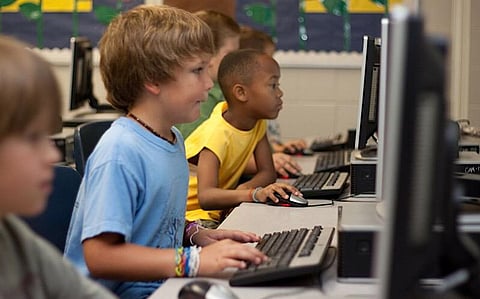
- Home
- NewsGram USA
- India
- न्यूजग्राम
- World
- Politics
- Entertainment
- Culture
- Lifestyle
- Economy
- Sports
- Sp. Coverage
- Misc.
- NewsGram Exclusive
- Jobs / Internships

Washington D.C. [USA], Sep 13, 2017: A new study has found that, the grades of children improve when they interact with children from other ethnicities.
More than 800 sixth-graders' lunching habits were looked upon, as a part of the research.
According to the researchers, the findings have suggested that schools might look for a course of action that would enable them to develop the student diversity and cross-ethnic interaction among students, outside their lunch meetings, in order to make the ethnic diversity work in their favor.
"The great part about these findings is that the results were just as true for white students as ethnic minority students (African American, Asian, Latino/a, and multi-ethnic)," said Adrienne Nishina, associate professor in the Department of Human Ecology and study co-author, mentions the ANI report.
The benefits from daily cross-ethnic socialization extend to even white and Asian students, who happened to have significantly higher GPAs than their counterparts from other ethnicities, finds the study.
Students who spent lunchtime with at least one cross-ethnic peer received higher GPAs in academic courses as well as higher teacher expectations for their educational attainment at the end of sixth grade, Nishina said.
Teacher expectations are a factor that can influence how students remain engaged in school long term, she further noted.
An average jump of one-third of a point, or an equivalent of heading from a B-plus average to an A-minus average, was reported among the students. The study also suggested the importance of the skills developed in the process of these cross-ethnic interactions, in concern with the problem solving skills, which would ultimately lead to academic achievements and success.
"It may also help later in life with career success, as individuals become increasingly comfortable and skilled at interacting with ethnically diverse peers," said Jakeem Lewis, the study's lead author and a doctoral student in human ecology.
The data is a collection of reports of the students who described their interactions at the end of five separate school days during a two-week period at six public middle schools in California, Oregon and Wisconsin
The student diversity in the sampling was clearly visible, with an ethnic majority of students at none of the schools, and reports of a number of students having friends from a different ethnicity.
-Prepared by Samiksha Goel of NewsGram. Twitter @goel_samiksha
NewsGram is a Chicago-based non-profit media organization. We depend upon support from our readers to maintain our objective reporting. Show your support by Donating to NewsGram. Donations to NewsGram are tax-exempt.
Click here- www.newsgram.com/donate
